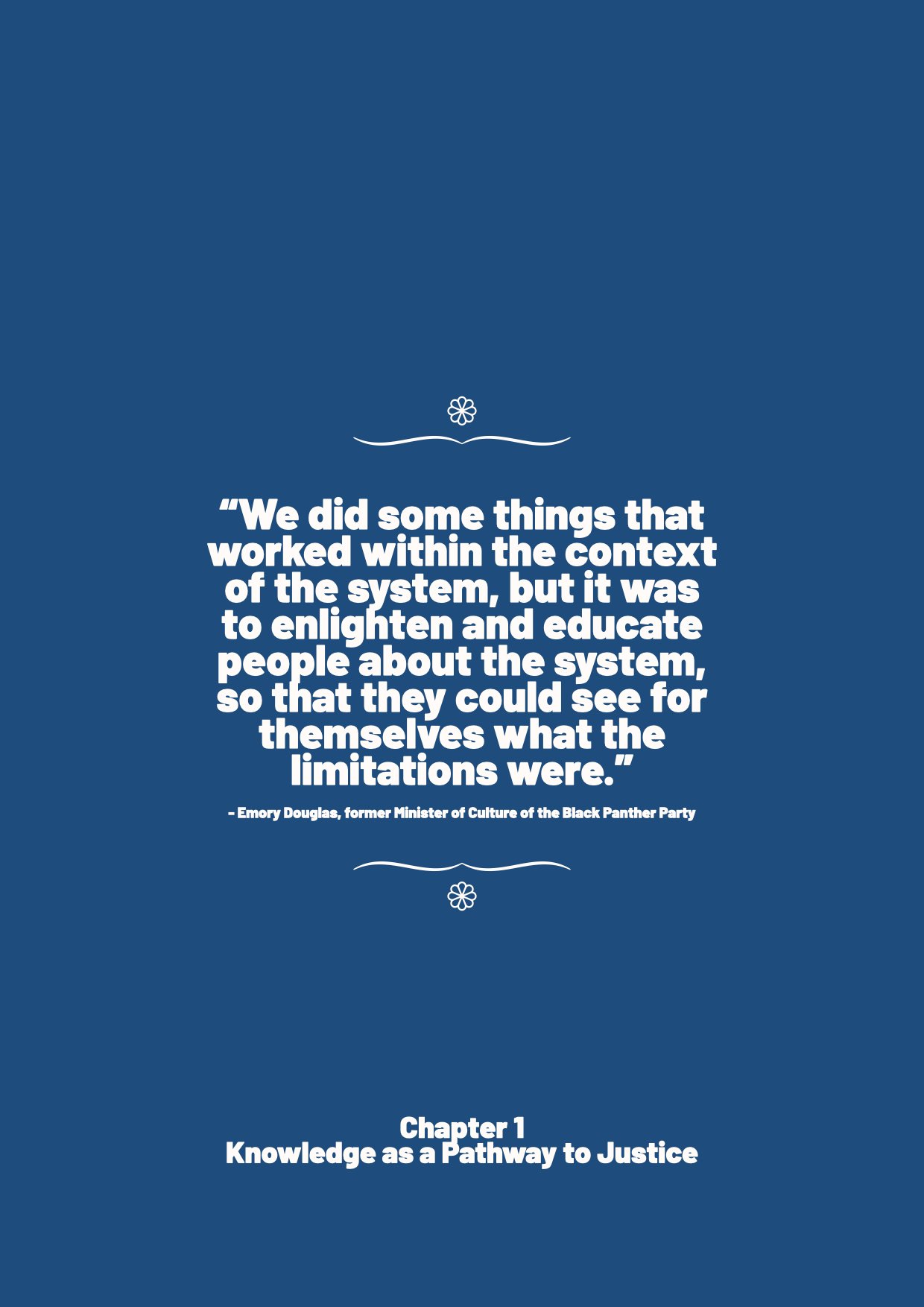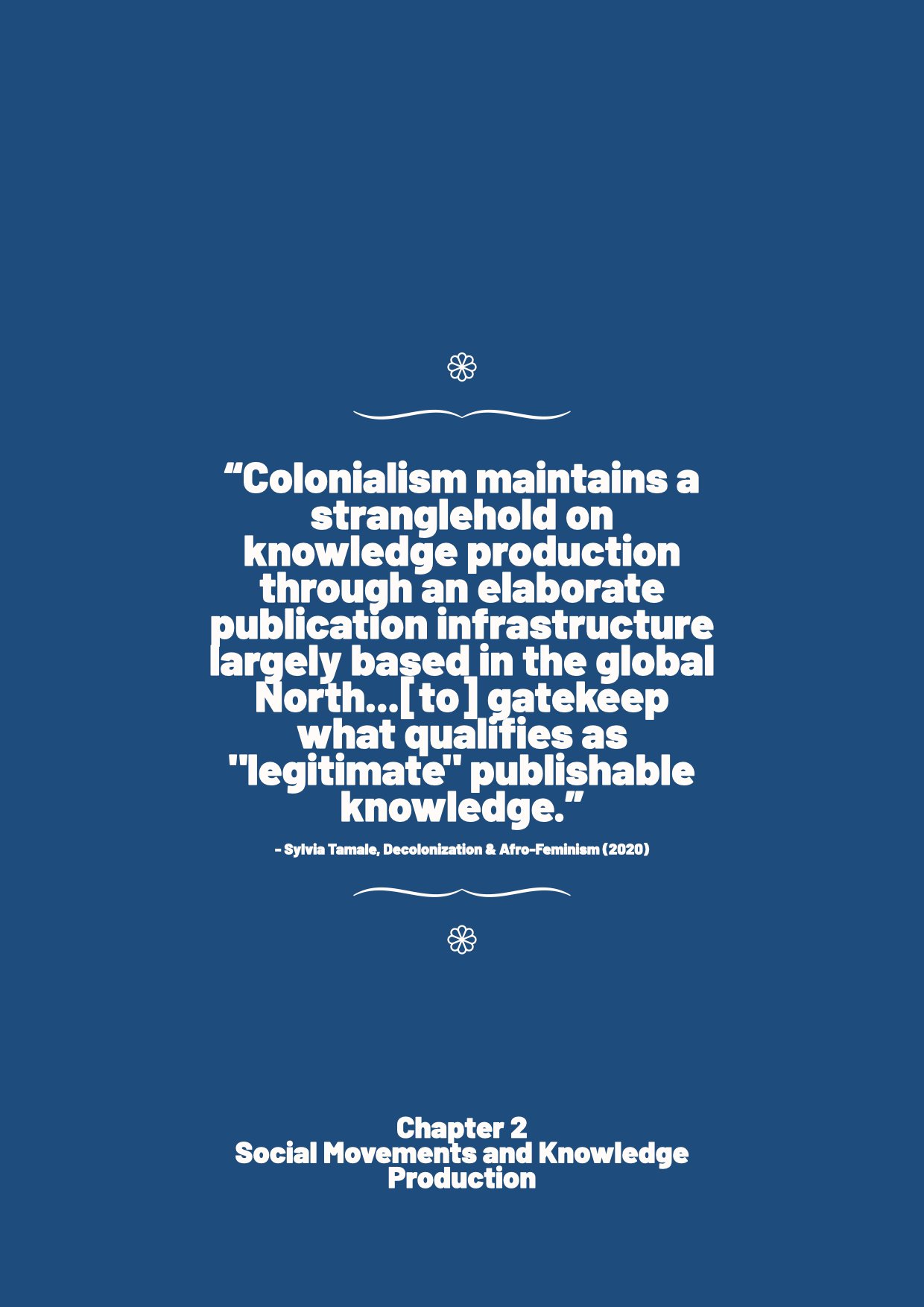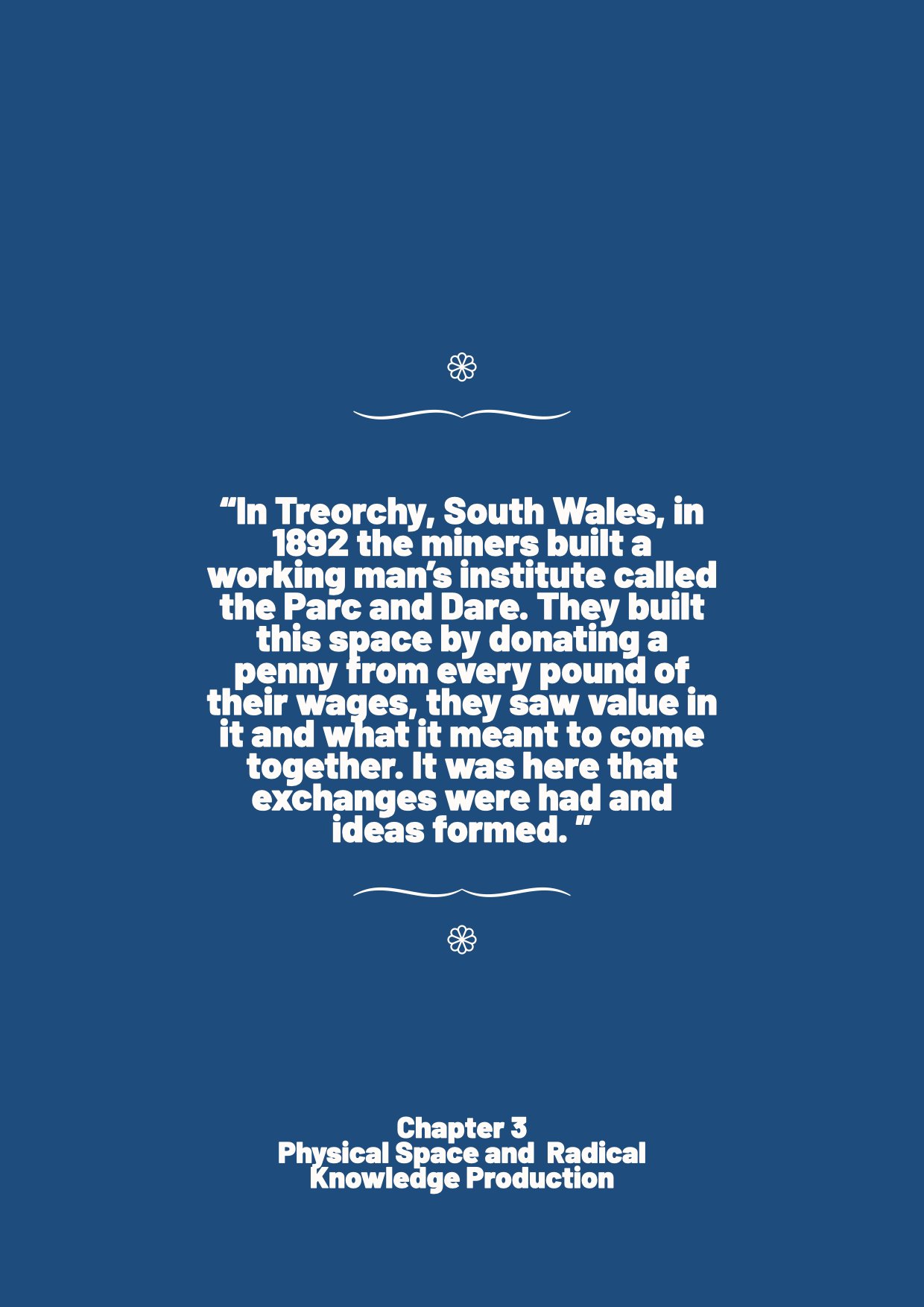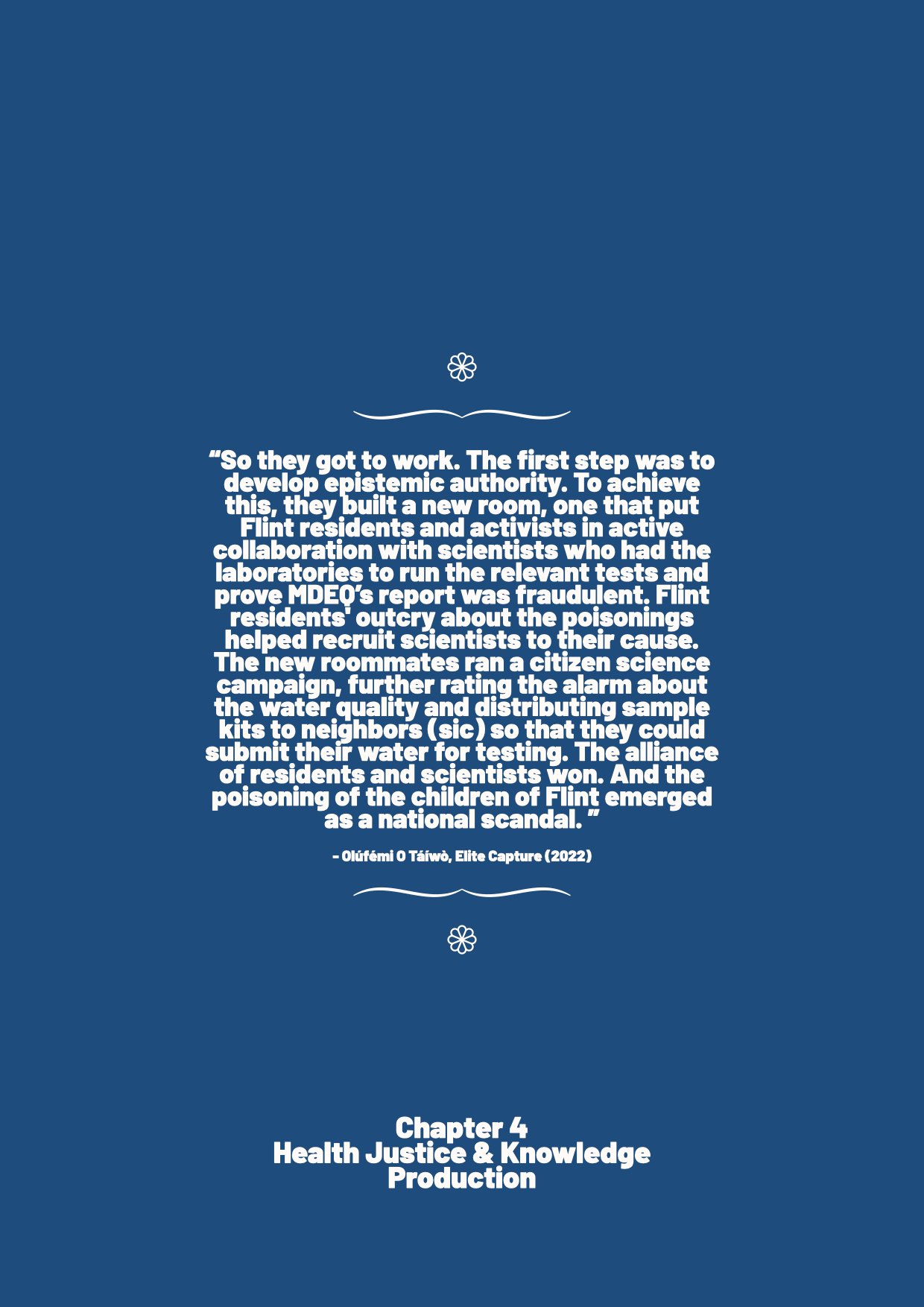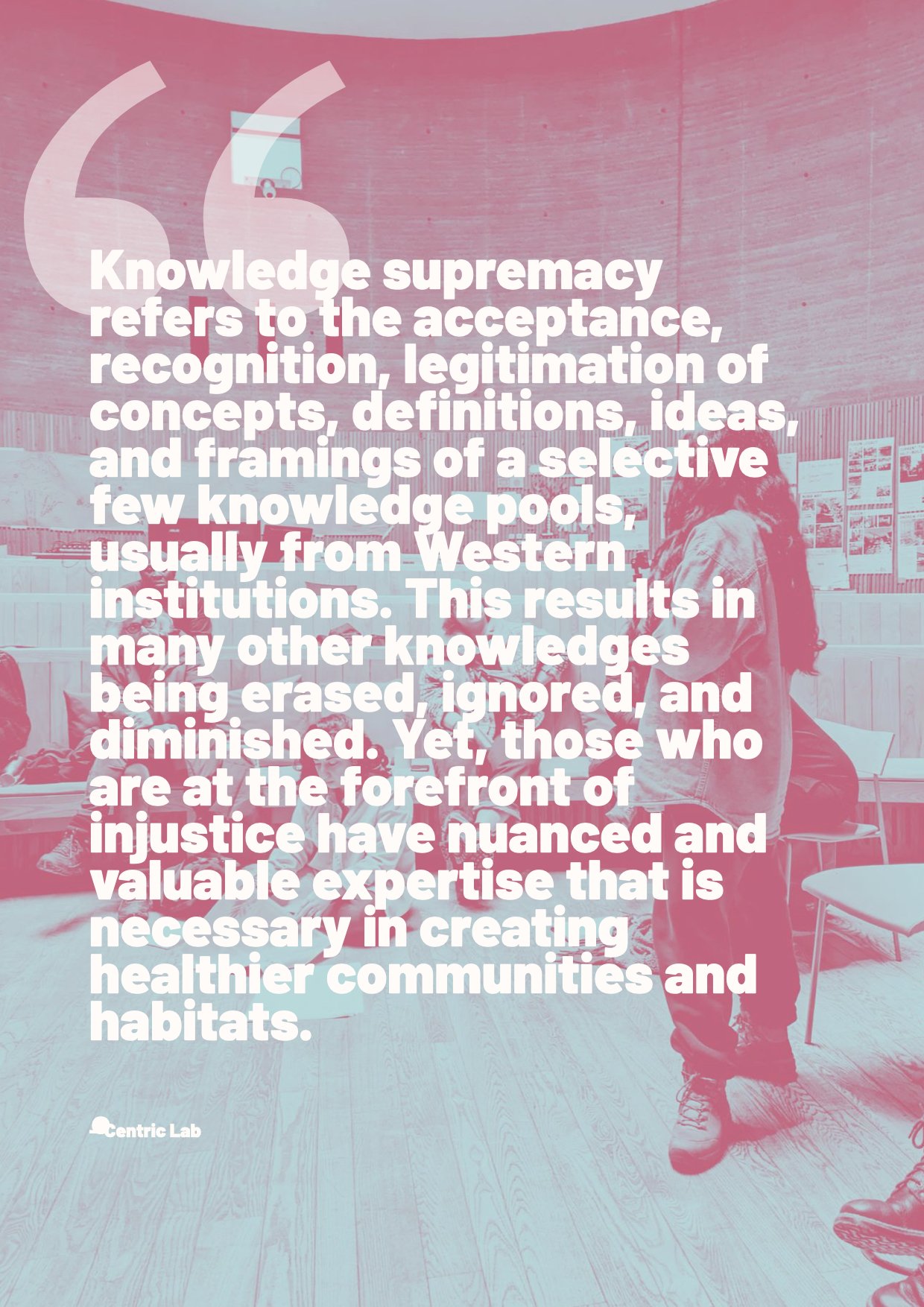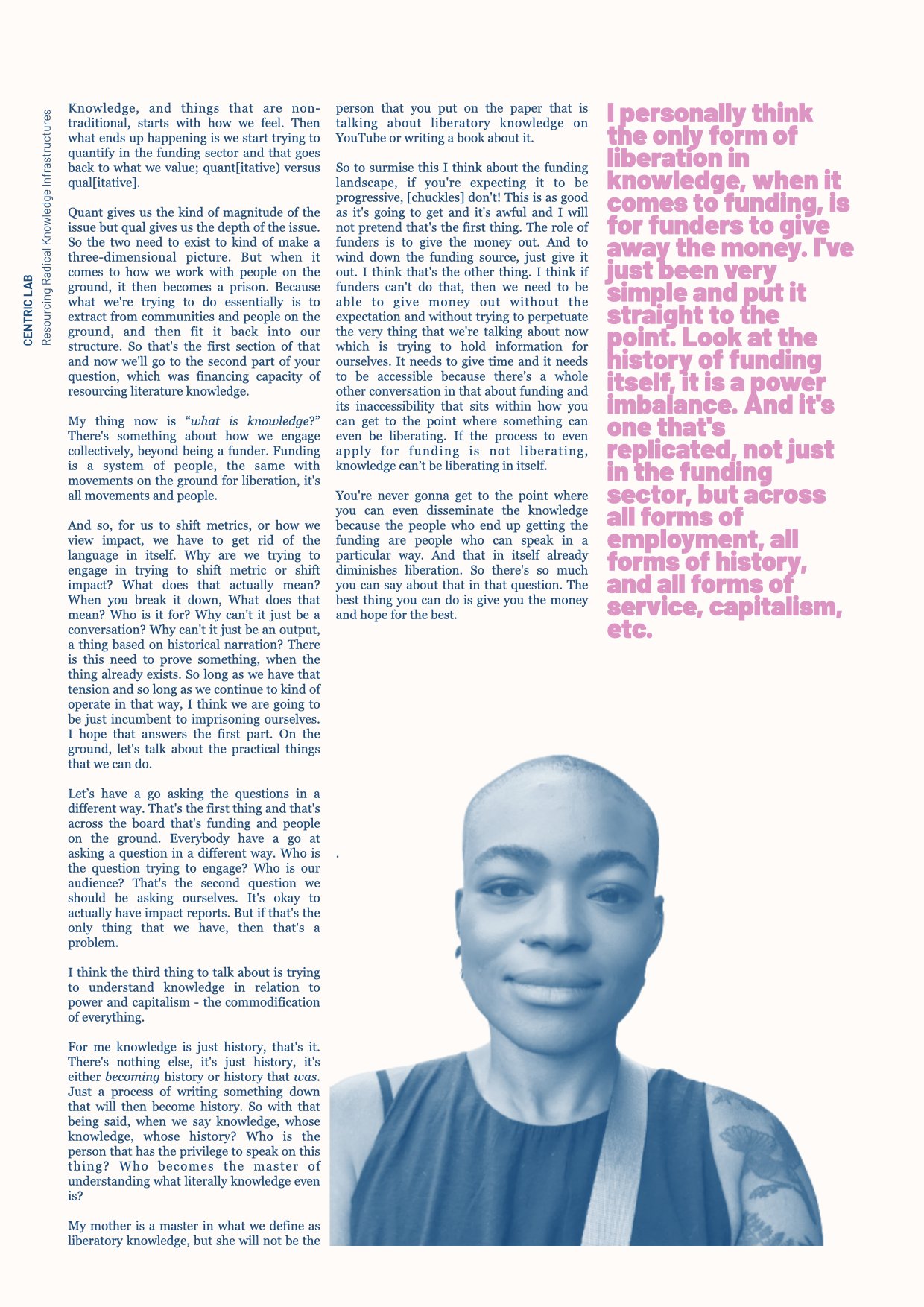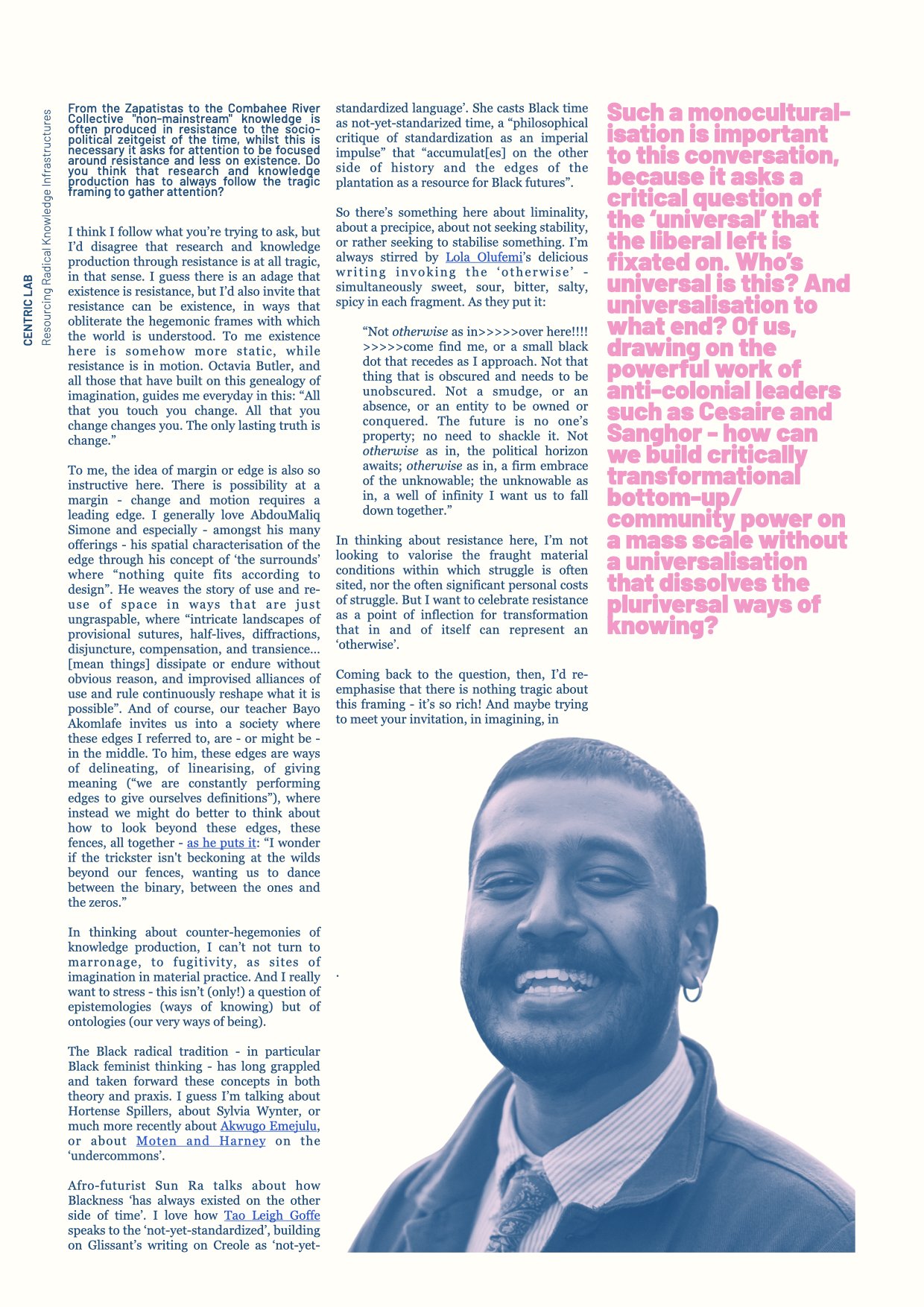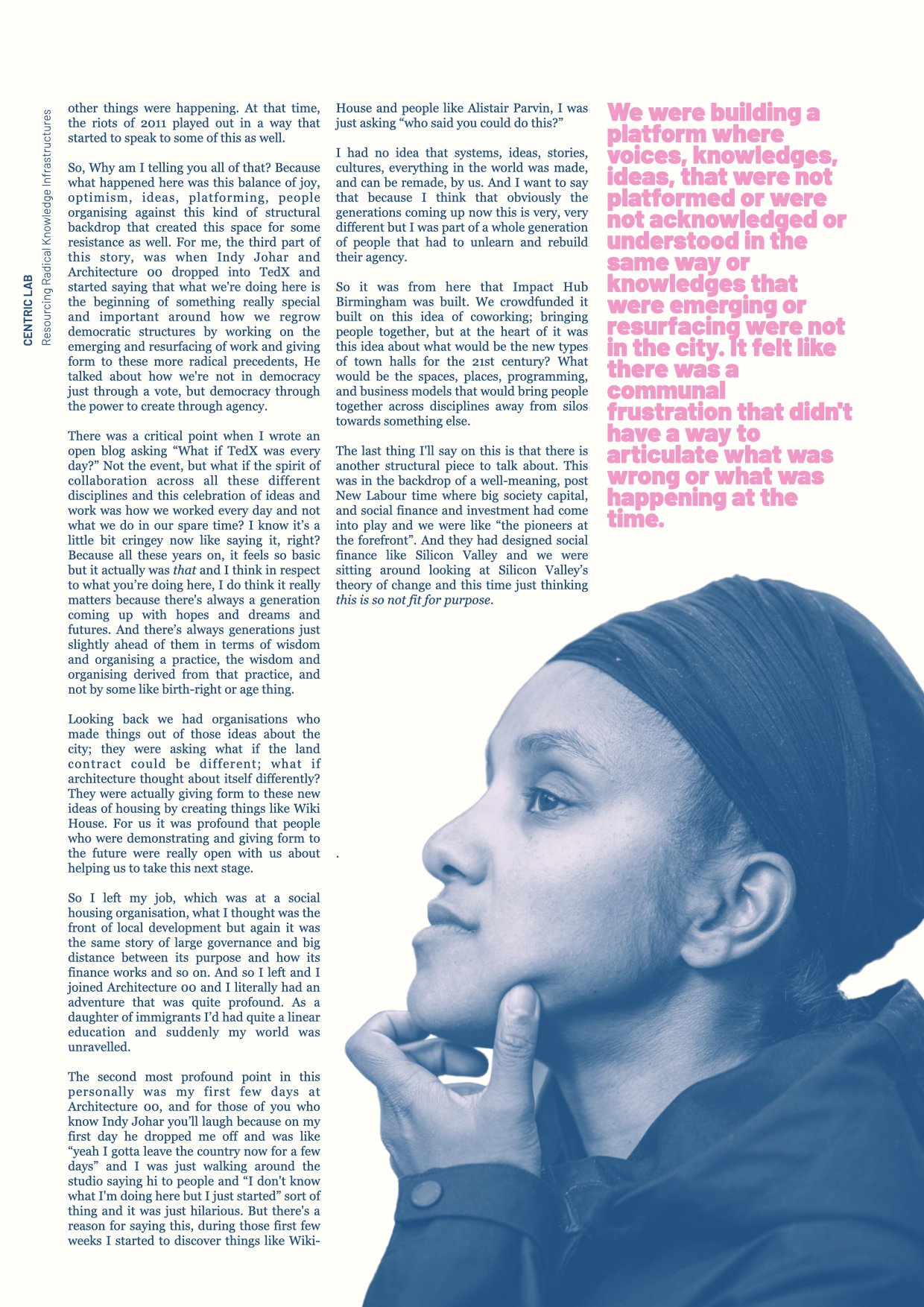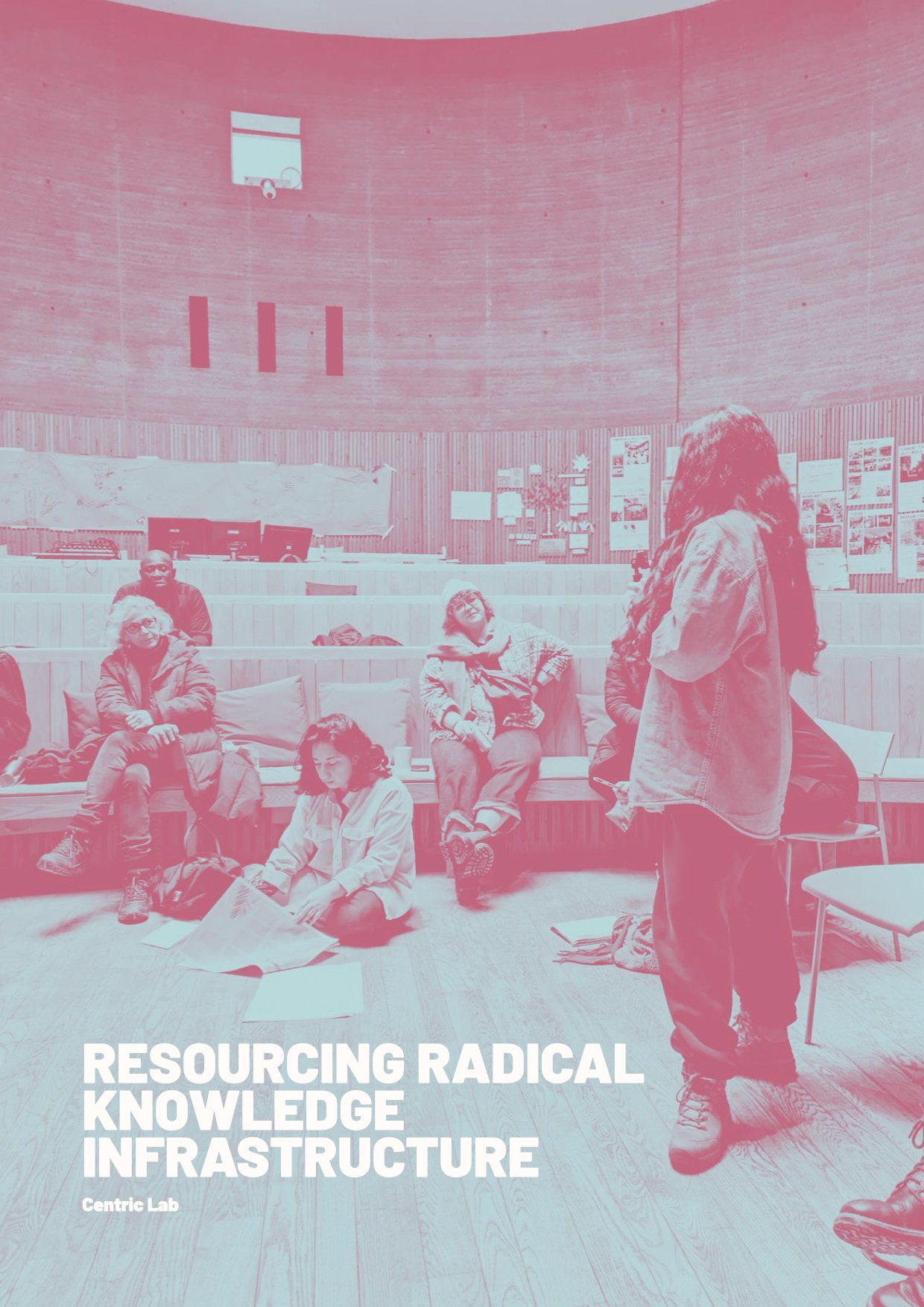
RESOURCING RADICAL KNOWLEDGE INFRASTRUCTURES
Executive Summary
This work declares an outline in the need for resourcing radical knowledge infrastructure. For clarity we’ll break down this terminology and explain how they work together.
Resourcing: the strategy of funding and find ways to offer support in alignment with movement organisers and communities;
Radical: freedom in the journey and destination unbound by exogenous limitations;
Knowledge: data, insights, wisdoms, feelings, how we interpret our surroundings;
Infrastructure: a system that allows for people, organisations, and movements to move through space in their own time.
Resourcing radical knowledge infrastructure means to create the financial, cultural, and equitable pathways for people, groups and movements to create, surface, resurface, and amplify knowledges without restriction, in order to build community power.
Why is this necessary? Because our present and future challenges cannot be met by working within the dominant and incumbent systems. The intersection of crises brought as a result of hetero-patriarchal white supremacy delivered through colonial capitalism means that the dominant ways of operating are illegitimate and unfit for the purpose of health justice; the requirement that all persons have the same chance to be free from hazards and stressors that jeopardise health, fully participate in society, and access the care and resources necessary to thrive.
Understanding the limitations of this market driven capitalist system are essential in liberating us from its dominant ideology; when the only tool you have is a hammer, everything looks like a nail.
However, if we use health as our tool for analysis then our approaches become inherently ecological. Health is the quantifiable, biological metric by which we can see the outcomes of societal decision making. It offers a lens by which we can investigate how political, commercial, and social decisions become structural determinants of health.
This four-part propositional paper outlines a justice led framework to developing the infrastructures needed to support the knowledge ecosystems. The narrative arch of this paper explores:
in chapter 1: the history or knowledge production in the UK and its white supremacist colonial roots, narrowing what is knowledge and who is allowed to have it - epistemicide.
chapter 2 explores the history of social movement organisations, who sit as a foundation for today's movements, and their focus on the importance of knowledge production and dissemination.
chapter 3 explores the recognised impact the built environment and physical property has/had in movement organising and cultural development in the 19th and 20th centuries;
chapter 4 explores a praxis for health justice by presenting a framework and methodology for the development of epistemic justice.
Each chapter has been supported and embellished by conversations with leading radical voices.
From chapter 1 we hear from Impact on Urban Health portfolio manager Lilian Latinwo-Olajide on the new roles funders can take to support knowledge as a pathway to justice.
From chapter 2 we hear from Dr. Kavian Kulasabanathan, an Eela-Tamil physician focused on state violence as a determinant of poor health and his views on movement organising for health justice.
From chapter 3 we hear from Imandeep Kaur, co-founder of CIVIC SQUARE, on their emergence as a community place-based organisation from the "‘coworking’ movement in the 2010s and their aims to imagine “what if TedX took place in every community, in every town across the country?”
From chapter 4, we hear from Tribal Law scholar Grace Carson on the Indigenous practice of restorative justice and its relationship with cultural appropriation.
These great minds bring to life the chapter's theme and demonstrate the day-to-day realities of how resourcing radical knowledge infrastructures may come about.
This paper also sits alongside a solidarity call to all other health justice oriented organisations who have had projects go unfunded because they were too knowledge based. You're invited to help build a picture of the breadth of knowledge based projects so that we can push funders and charities to recognise and collaborate.
We hope that restructuring and contextualising the insights from this proposition paper helps us collectively meet the ongoing and exponentially worsening health challenges present as a result of 400 years of racial capitalism. From here, we invite readers to allow the words to sit and integrate, and move them towards actions. Whether you are a funder, organiser, researcher, health practitioner or decision-maker.
Our 4-key recommendations are:
For the wider funding landscape to acknowledge the importance of knowledge being created outside the incumbent systems and methods. This includes the reduction of relying on the Academic Industrial Complex as the accepted primary source of knowledge and decolonising the metrics by which funders place value on knowledge production.
For knowledge to exist free of top-down determined structures. This includes recognising the intergenerational organising of oral histories by Elders who can support the strategies to effectively sustain, archive and make accessible radical knowledges that have historically relied on proximity of community to transcend generations.
For recognising the importance of organising, convening, learning in place together. Austerity and overt-financialisation of the built environment has taken away over 10,000 publicly owned non-residential spaces in the UK. Charities and philanthropic institutions have the capacity to support movement organisations in local neighbourhoods through policy instruments, such as Section 106 Agreements, yet this opportunity goes unanswered and social movements go unsupported in the “free-market”.
For surfacing methodologies for addressing conflict have been transformed to ones that are punitive, dominating and paternalistic. Radical knowledge infrastructures will also include the resourcing of ancestral approaches to conflict, centring marginalised communities in a restorative justice process ensuring that healing is focused on those who are carrying the greatest burdens of surviving under racial capitalism.
OUR CALL TO FUNDERS
To join us in conversation to explore the necessary role philanthropy plays in resourcing radical knowledge infrastructures and the importance they play in supporting the wider social impact and charity sectors.

